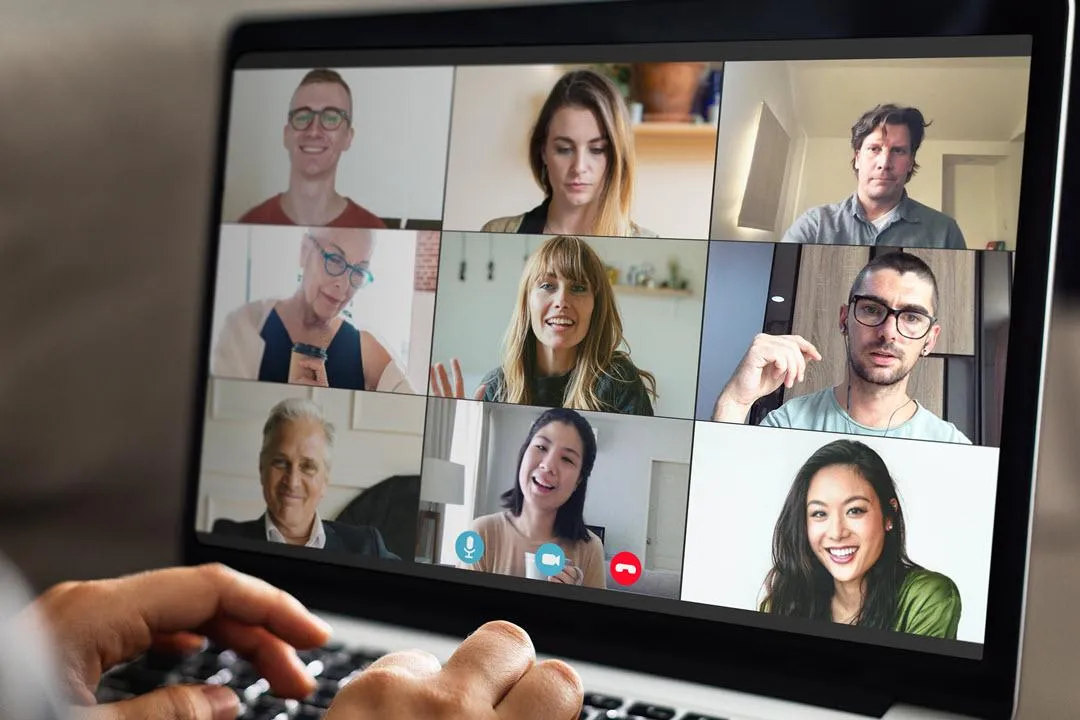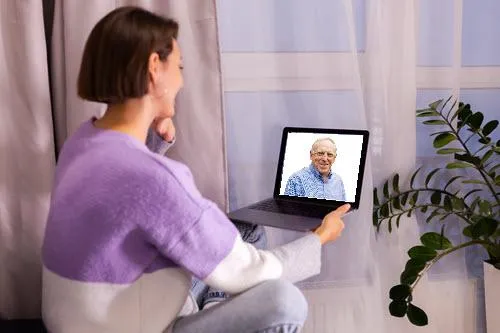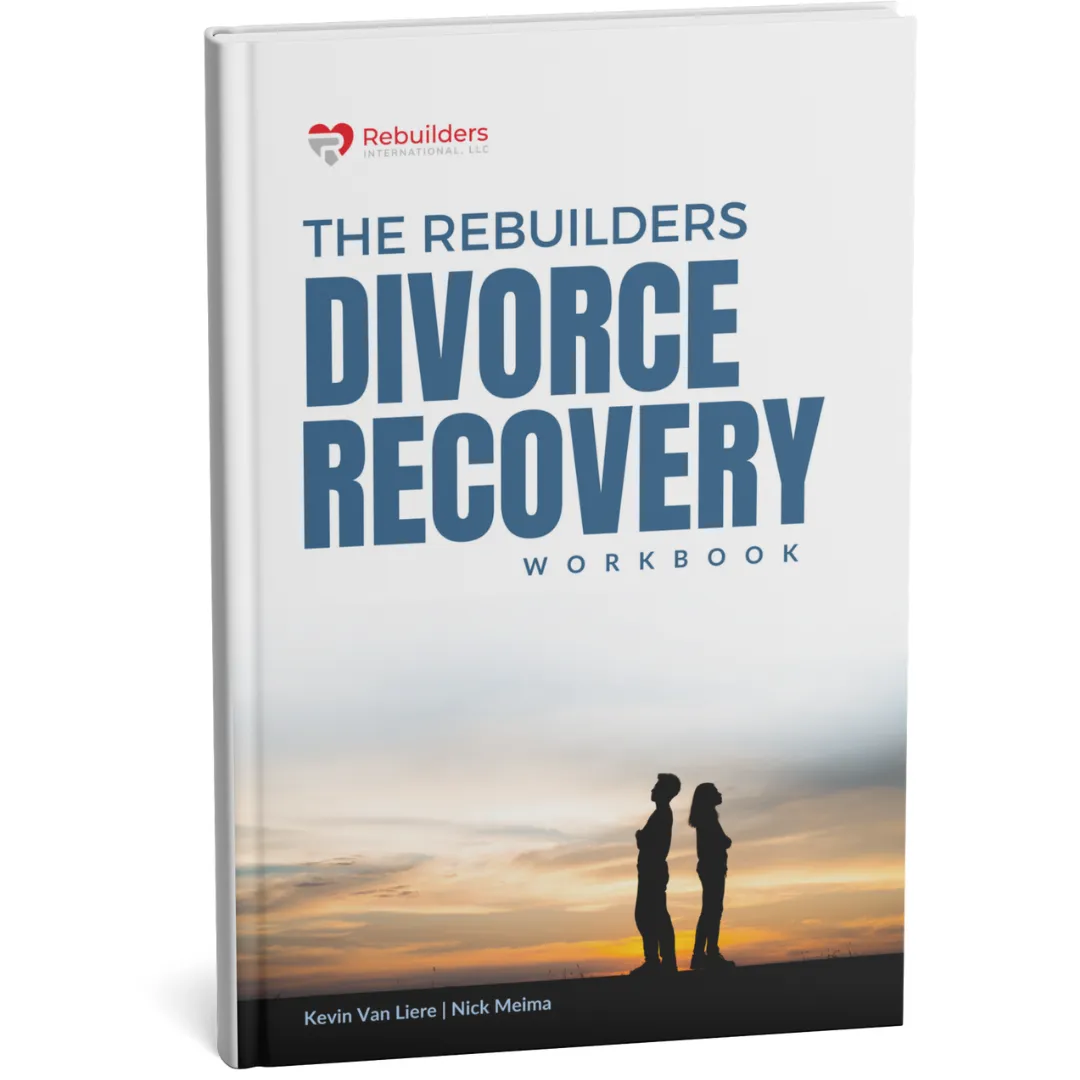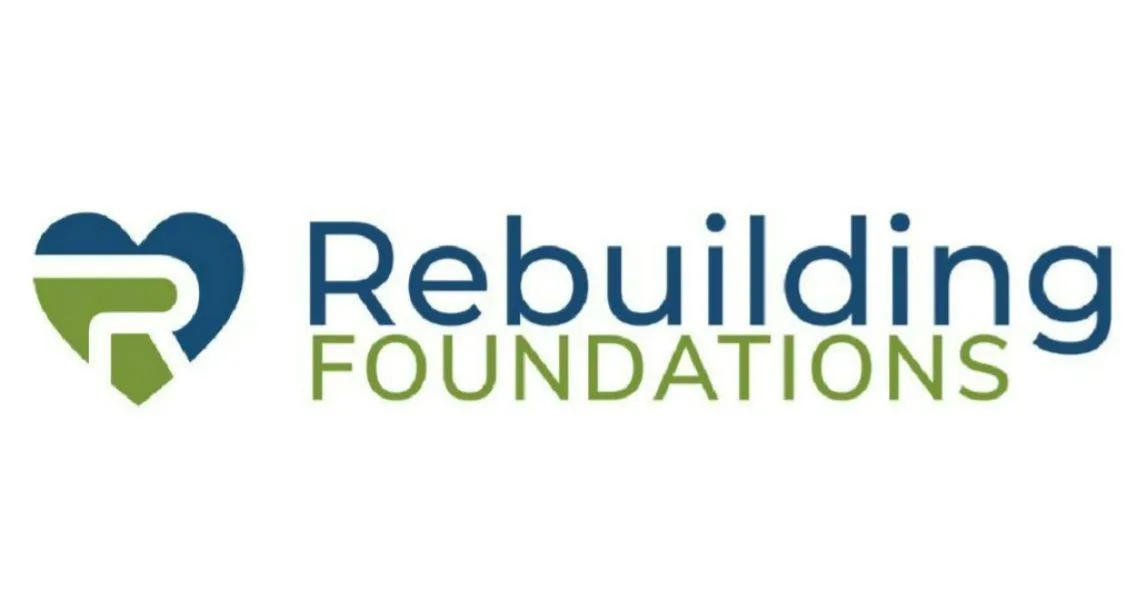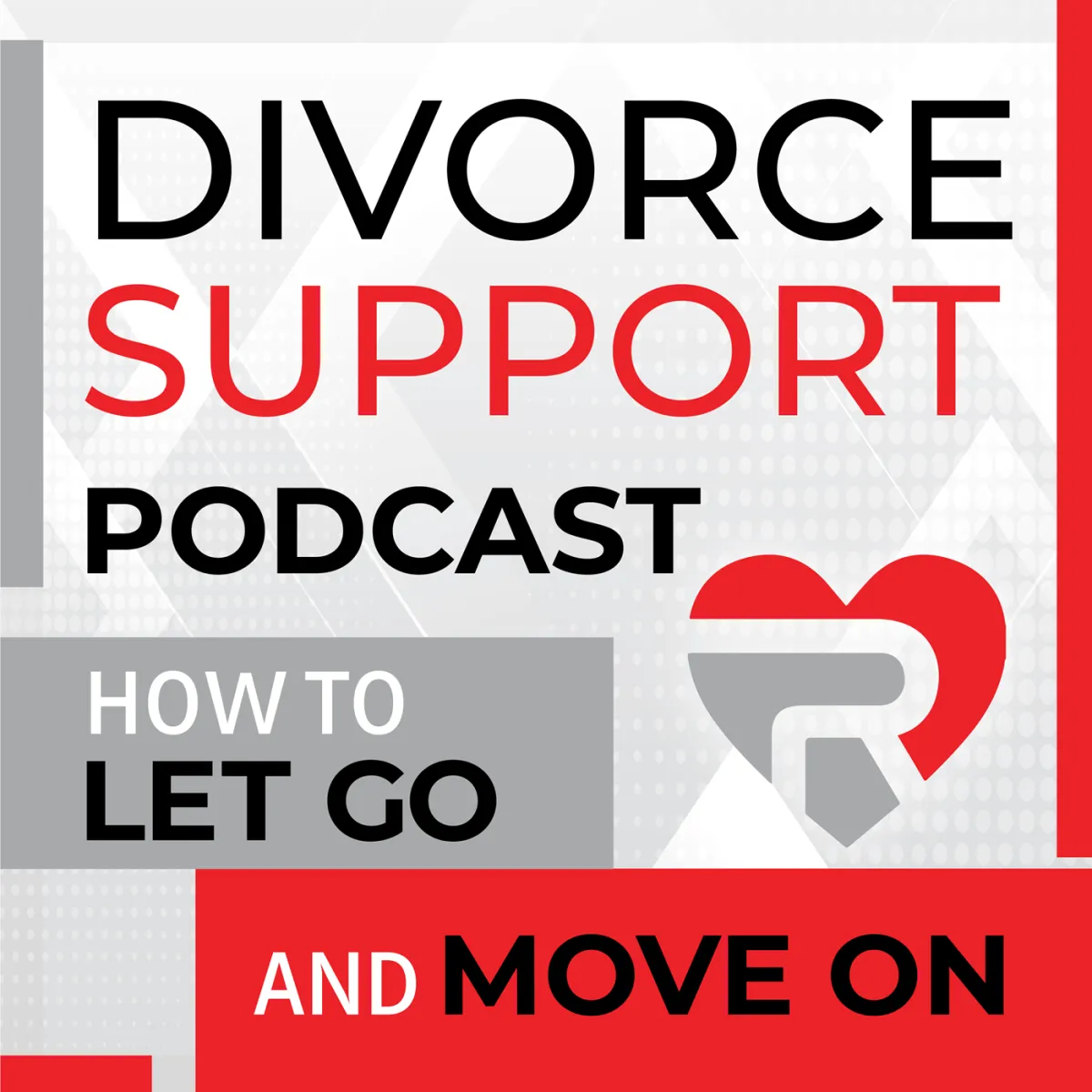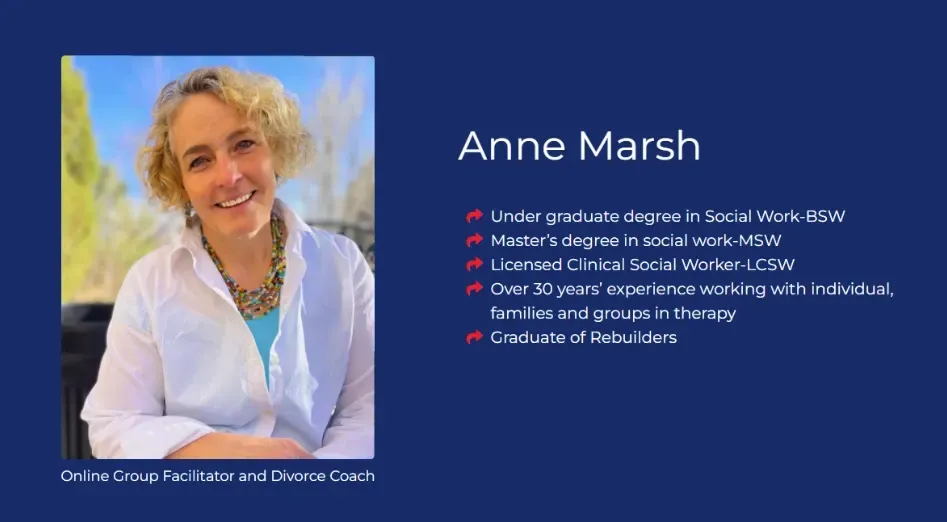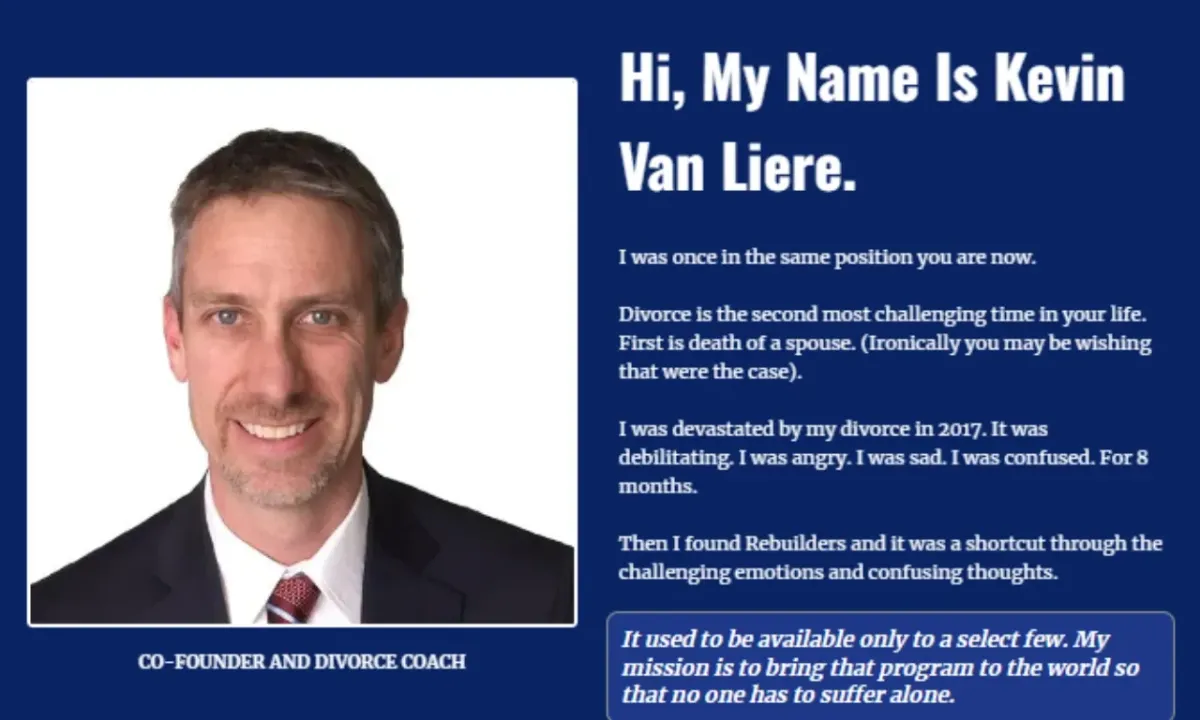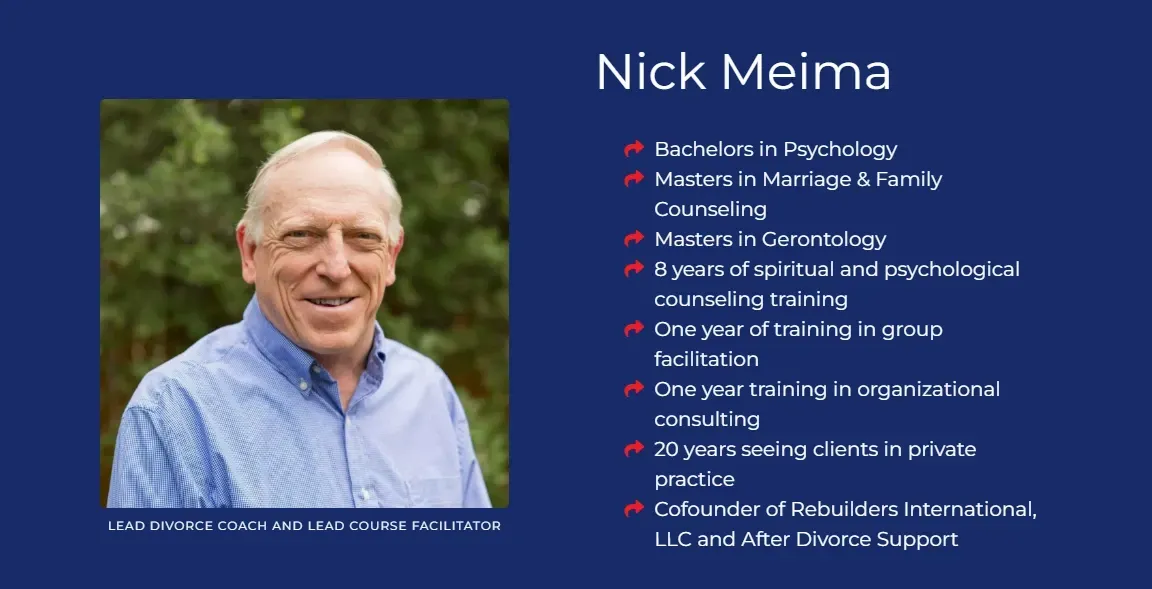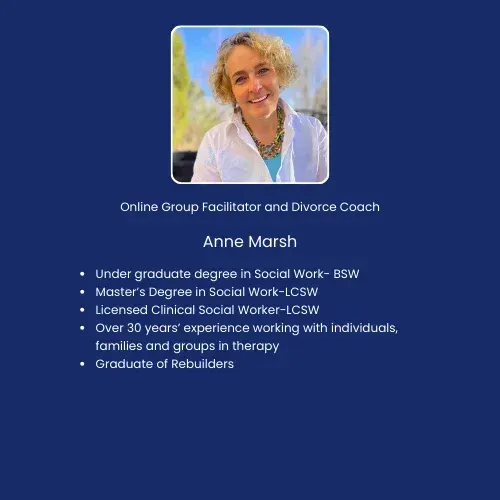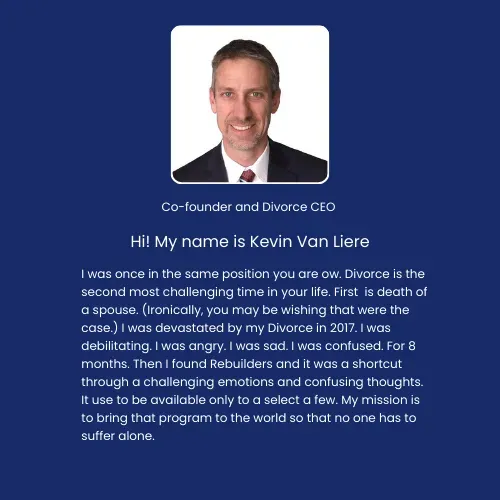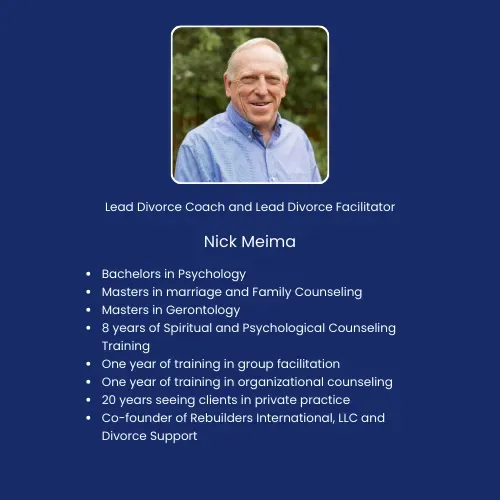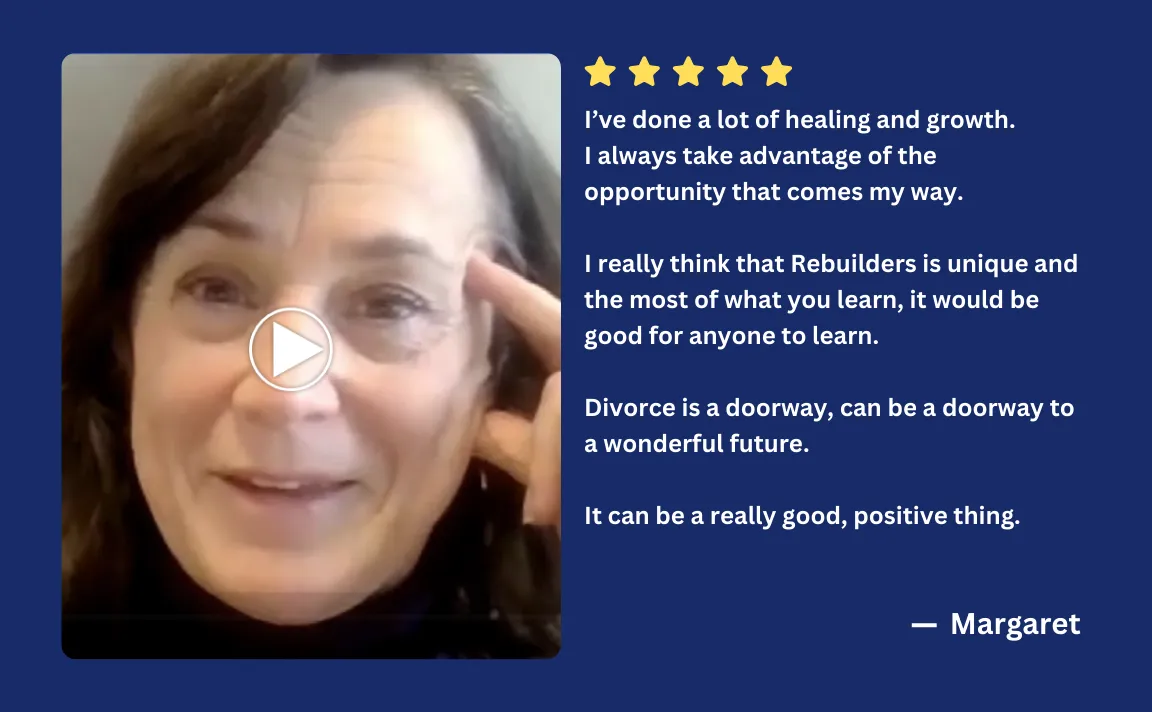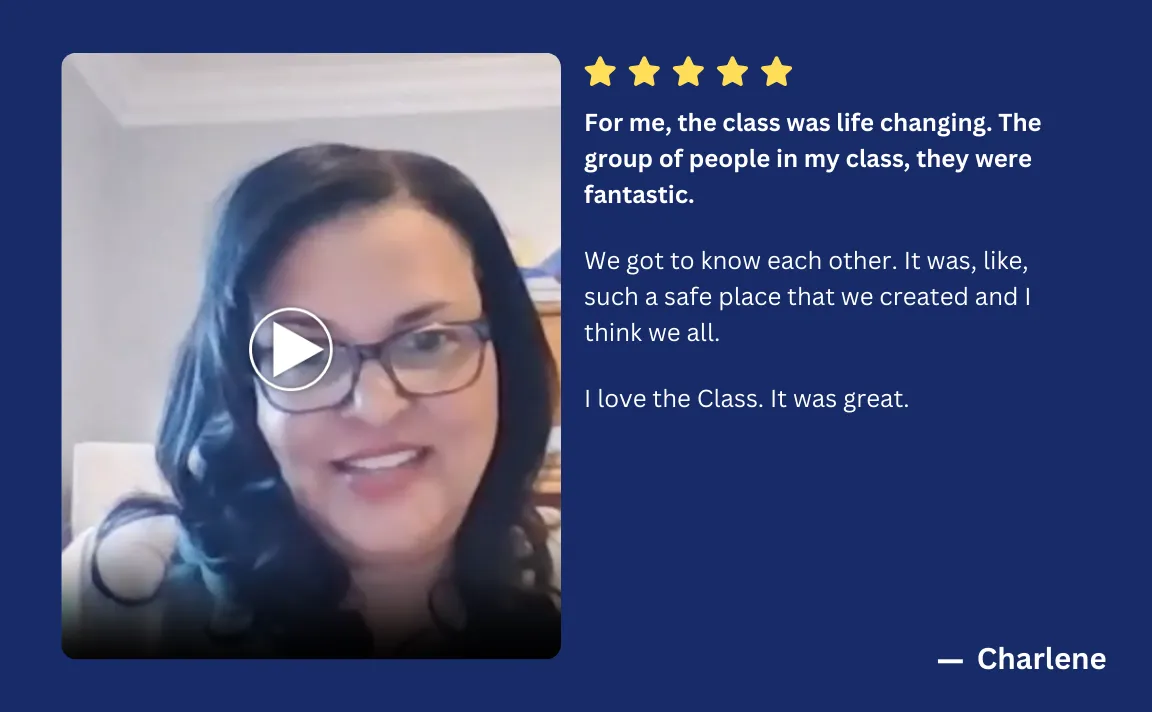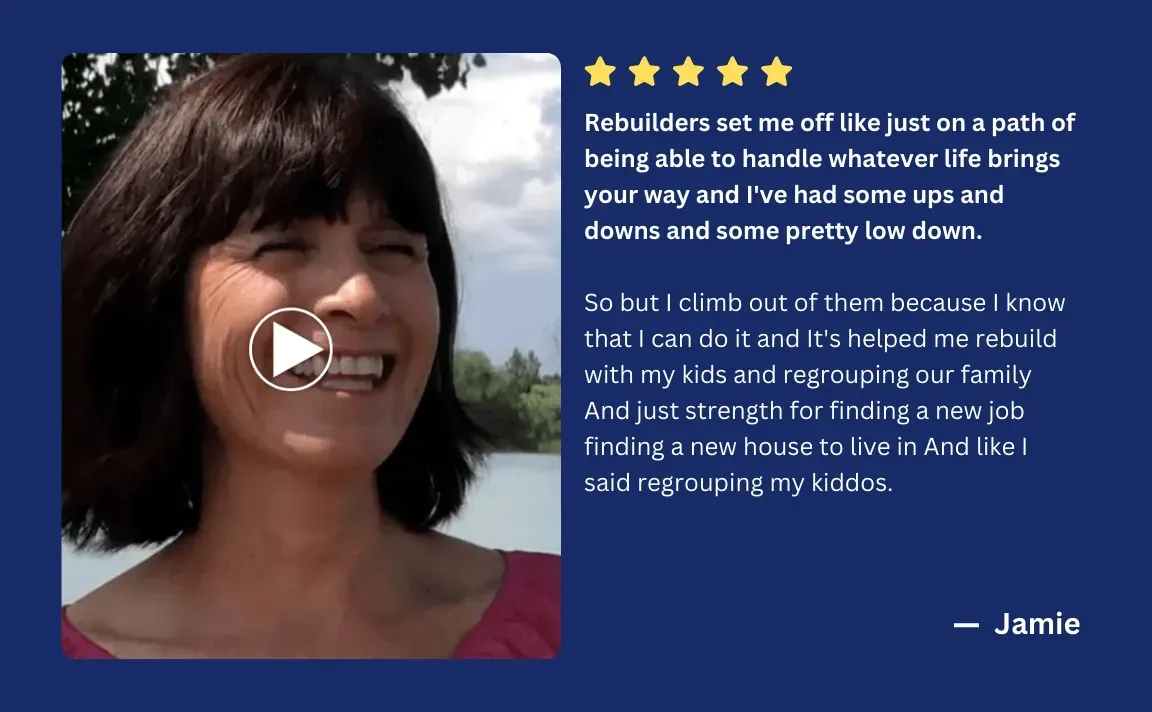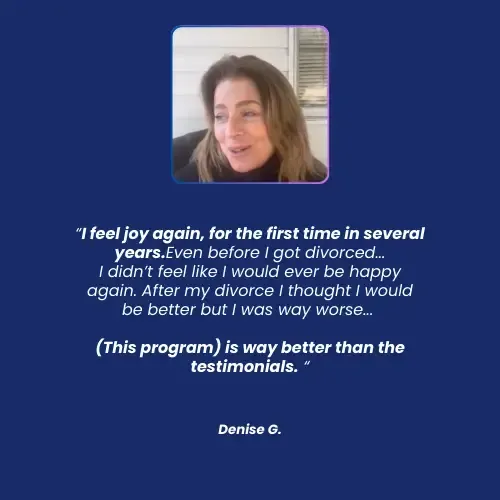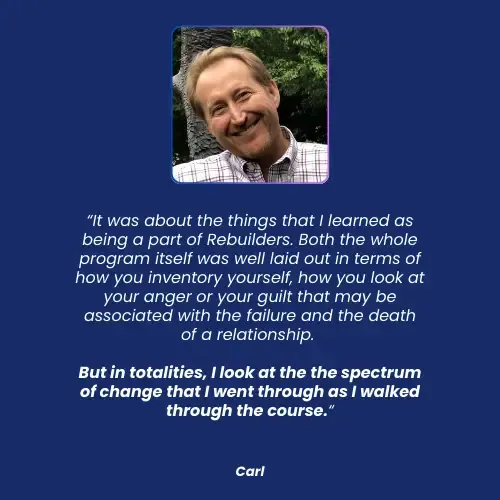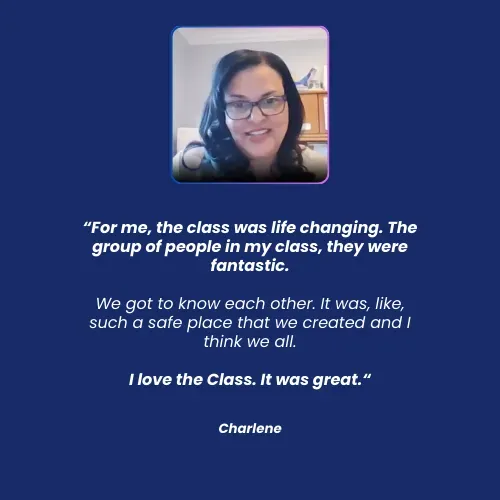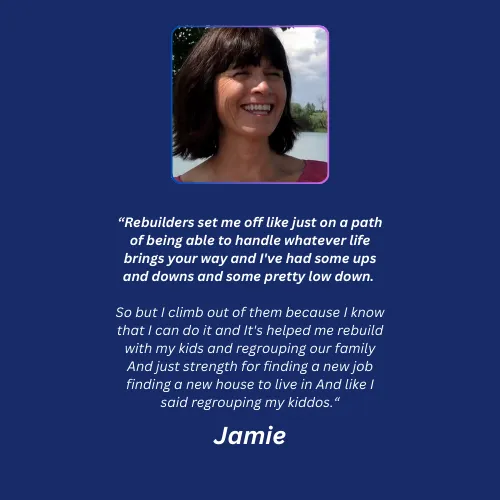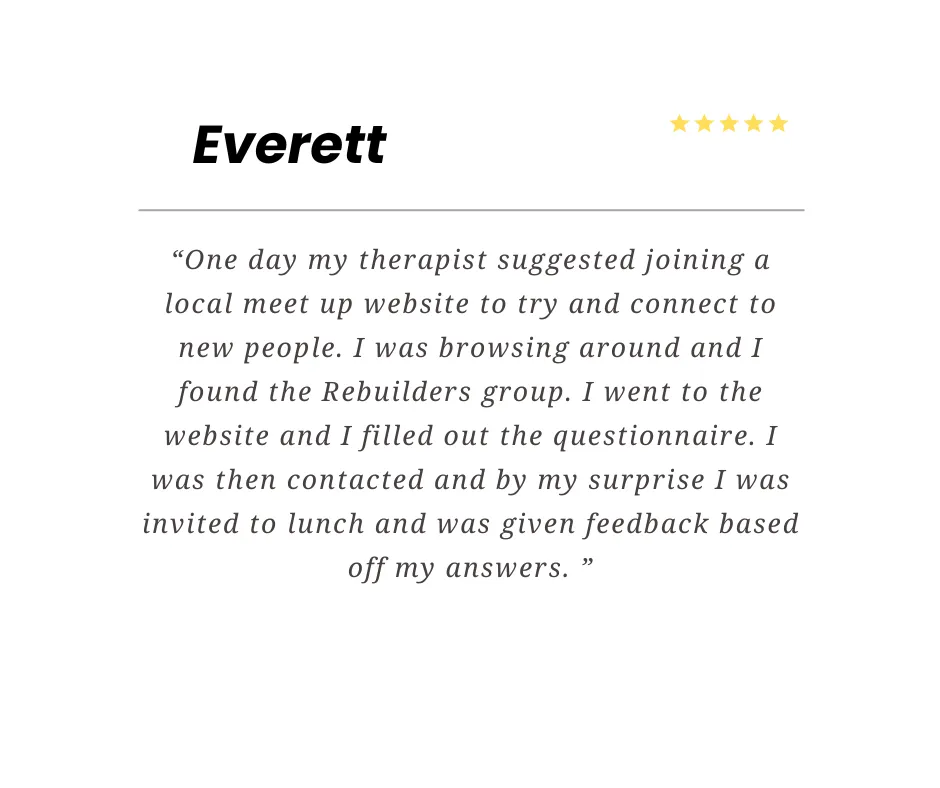FEATURED STORIES...
(Click on the images to open in a new tab)
Welcome to the #1 most comprehensive divorce recovery program in the world. For 40 years.
Is Divorce in your future?
In the Divorce Process?
Divorced?
THERE'S NO CIRCUMSTANCE OR SITUATION THAT WE CAN'T HELP WITH

A program that has been reliably operating
for over 40 years.
97% Success Rate
Don't know where to start?
Your Journey Begins Here

Get an "Emotional Weather Report
Learn how you are doing in 6 key areas, plus get free, personalized training on how YOU can recover best!

Schedule a FREE 30-Minute Consult
Talk with an expert Divorce Coach about your situation, your results, and the best path forward for YOU.

Sign up for an introductory class
Learn more about the Rebuilders programs available to you that will fit your schedule and budget
Take the First Step Here
Our Courses and Services
10-WEEK
GROUP CLASSES
The Most Effective, Efficient and PROVEN System In The World, For Over 40 Years.
Group classes have proven to be the BEST method for recovery when dealing with divorce. Being able to connect with others in a similar situation is SO powerful and important!

Online Workshops
NEXT ONLINE CLASS STARTS:
Sunday December 7th at 3pm ET (noon PT)

Our Online Divorce Recovery Groups are 2 hours long, designed to focus on your healing journey. These Divorce Recovery Online sessions connect you with others in a supportive community, where skilled coaching guides you every step of the way.
In-Person Seminars
Divorce Recovery Workshops are offered in more than 20 locations worldwide, giving you access to in-person sessions.
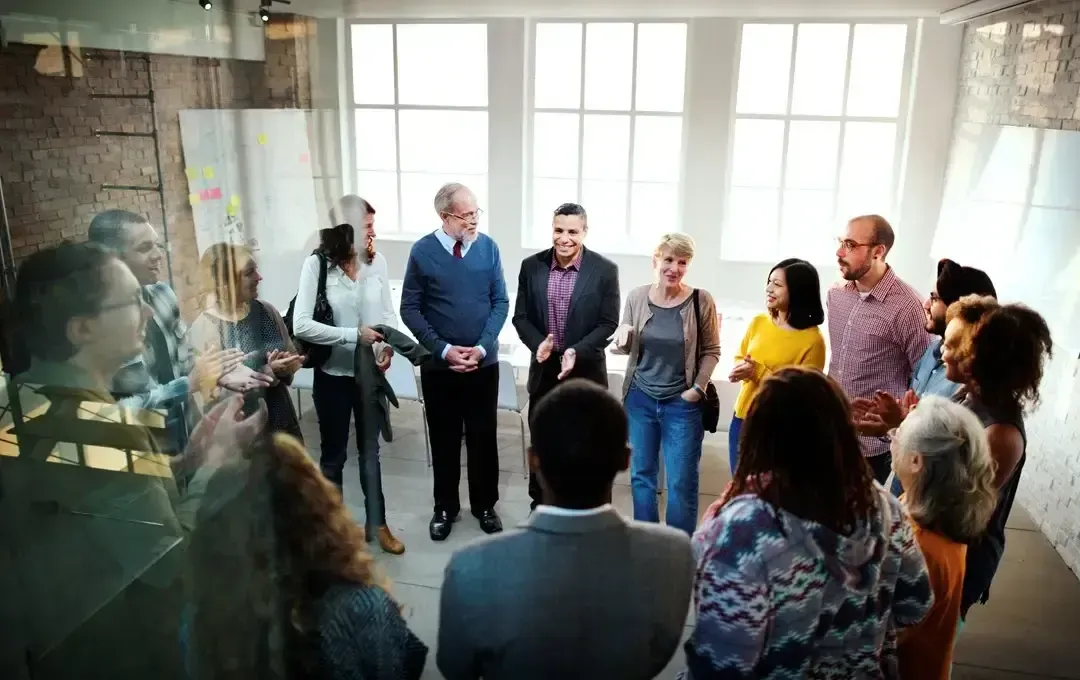
Local groups are also focused on recovery but they typically focus more on community and making connections locally. Join now to get the support you need!
FIND A SEMINAR NEAR YOU
Weekly Support Group
EVERY TUESDAY NIGHT
8-9:30pm Eastern (5-6:30 PT)

Our Divorce Group Sessions offer a safe and supportive environment, designed to help you heal and grow with others who understand your journey. Participate in these Divorce Recovery Workshops from the comfort of your own home.
PRIVATE COACHING
Your Situation Is Unique.
You Are Unique.
Group classes are tremendously helpful but we know that people also have some very difficult situations that they are dealing with. When working with a coach One-on-One you can dramatically accelerate the process and get guidance on YOUR situation in a focused, personalized process.
A lot of people try therapy as the deal with divorce. Many find that therapy does not give them the results that they are looking for. Coaching does.

E-COURSES
Do you have a busy schedule or tight budget?
We offer a variety of self paced programs in which you are guided step-by-step. You can focus on a particular area of recovery or get our proven 10 step recovery program. These courses will fit into any schedule and some you can get started for free. All come with a money back guarantee. You also have the option of adding private coaching as well.

4O Years Of Changing People's Lives.

MEET DR. BRUCE FISHER
The founder of the Rebuilders program was Dr. Bruce Fisher (1931-1998). He was born in Iowa but spent most of his adult life in Boulder, Colorado. He was a popular divorce therapist, author, teacher and a Clinical Member of the American Association for Marriage and Family Therapy. As he worked with clients dealing with divorce he realized that traditional therapy didn’t work efficiently.
He began working with his clients in groups and eventually found that there are 19 “steps” that people must work through to effectively “Rebuild” their lives. From this work he wrote the book “Rebuilding When Your Relationship Ends.” We still use this book as a reference in our classes. Since he wrote the book over 30 years ago we have learned a lot and the program has evolved considerably. Now we find that there are more “steps” and that there are some elements that Dr. Fisher wasn’t aware of or misunderstood. However, he still created a powerful foundation for the program that we run today.
This program continues to improve and it works.
We guarantee it.

Don't be alone!
Join us on social media and start your journey to rebuilding
How Our Program Works

Head
Your thinking, mindset, beliefs, and values all influence how you respond to the traumatic experience of divorce. We show you how to step outside of the rumination about the past. Learn to step outside of the normal traps that keep people stuck thinking about the past.

Heart
Many people suppress, depress, or repress their feelings. Divorce brings so many "difficult" feelings. We give you tools to work through them, use them, and feel the "good" feelings again - like HAPPINESS, JOY, AND LOVE.

Identity
In marriages people "lose" themselves. When the marriage ends they don't know who they are as a single person. We help you connect with yourself so that you can be comfortable being alone in your own skin.
Free Divorce Resources
Rebuilders is committed to helping EVERYONE, regardless of their financial situation.
The Program Works Regardless of Your Situation!
Is Divorce in your future?

Learn what you can do find the best path forward
It is a very difficult time in your life when you are facing the possibility of divorce. We offer a wide variety of tools, information and personal coaching to help you.
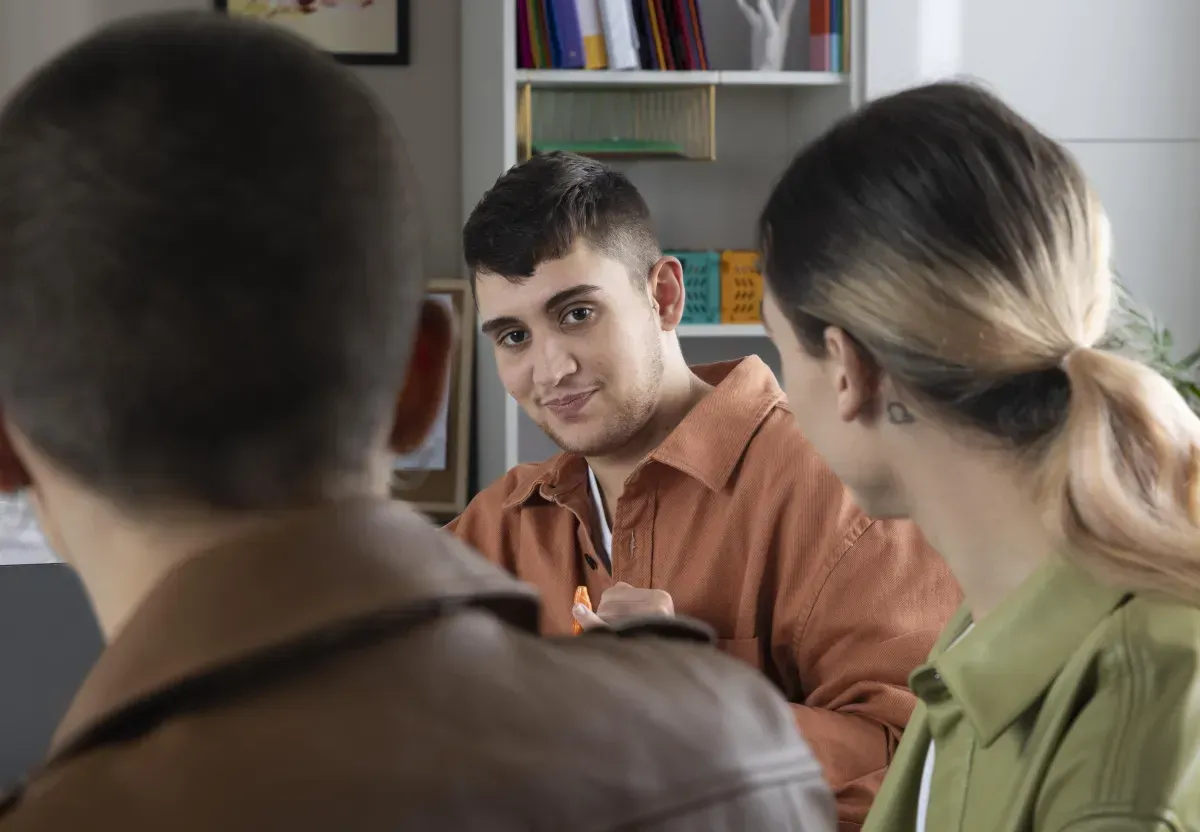
Finding Your Tribe: Choosing the Right Support Group for Divorce
Going through a divorce can be one of the most challenging times in your life. Finding the right support group can make a significant difference in how you navigate this emotional journey. Support groups provide not only emotional support but also practical advice, helping you rebuild your life after a major upheaval. Here’s how you can choose the right support group to meet your needs.
Understanding the Importance of a Support Group
Divorce can leave you feeling isolated, overwhelmed, and unsure of where to turn. Joining a support group gives you the chance to connect with others who are experiencing similar challenges. These groups can offer a safe space to share your feelings, gain perspective from others, and receive the encouragement needed to move forward. The shared experience of a support group often provides comfort and can be a powerful tool in your healing process.
Assessing Your Needs
Before you choose a support group, it’s essential to assess what you need most at this point in your journey. Are you looking for emotional support, practical advice on co-parenting, or tips on rebuilding your life? Understanding your primary needs will help you narrow down the type of support group that will benefit you the most.
Types of Support Groups
There are various types of support groups available, each catering to different needs:
General Divorce Support Groups: These groups are open to anyone going through a divorce and typically focus on providing emotional support and practical advice on navigating life after divorce.
Specialized Support Groups: Some groups focus on specific aspects of divorce, such as co-parenting, dealing with a high-conflict ex-partner, or rebuilding self-esteem after a relationship ends. If you have a particular challenge, these specialized groups might be more beneficial.
Online vs. In-Person Groups: Online support groups offer flexibility and anonymity, making them a great option if you’re not comfortable sharing in person. In-person groups, on the other hand, provide a more personal connection and the chance to build deeper relationships.
Finding the Right Fit
Once you have identified your needs, it’s time to find a group that fits well with your personality and situation. Here are some tips to help you choose:
Do Your Research: Look into the groups available in your area or online. Check reviews, talk to facilitators, and if possible, attend a session to see if it’s the right fit for you.
Consider the Group Size: Some people thrive in larger groups, while others prefer the intimacy of a smaller group. Consider what environment makes you feel most comfortable.
Evaluate the Group’s Approach: Different groups have different approaches, ranging from peer-led discussions to more structured programs led by professionals. Choose a group that aligns with your preferences.
Making the Most of Your Support Group
Once you’ve joined a group, it’s important to engage actively. Share your experiences, listen to others, and be open to the advice and support offered. Remember, the goal is to heal and move forward, so try to approach the group with an open mind and a willingness to grow.
Conclusion
Finding the right support group during your divorce can be a crucial step in your healing process. By understanding your needs, researching your options, and choosing a group that feels right for you, you can find the support you need to navigate this difficult time. Whether you prefer online anonymity or in-person connection, there’s a group out there that can help you rebuild and find hope again.
For more information on divorce support groups, you can explore resources and programs offered by Rebuilders atRebuilders.net (Divorce Recovery) (Divorce Recovery).
In the Divorce Process?

Divorce Resources – Support for All Stages of Divorce
When you are dealing with divorce there is a lot going on. There are legal issues, financial issues, emotional issues, parenting issues and more. When faced with all of these pressures we see that people that pay attention to the emotional effect of divorce are better able to navigate everything else much better.

Finding Your Tribe: Choosing the Right Support Group for Divorce
Going through a divorce can be one of the most challenging times in your life. Finding the right support group can make a significant difference in how you navigate this emotional journey. Support groups provide not only emotional support but also practical advice, helping you rebuild your life after a major upheaval. Here’s how you can choose the right support group to meet your needs.
Understanding the Importance of a Support Group
Divorce can leave you feeling isolated, overwhelmed, and unsure of where to turn. Joining a support group gives you the chance to connect with others who are experiencing similar challenges. These groups can offer a safe space to share your feelings, gain perspective from others, and receive the encouragement needed to move forward. The shared experience of a support group often provides comfort and can be a powerful tool in your healing process.
Assessing Your Needs
Before you choose a support group, it’s essential to assess what you need most at this point in your journey. Are you looking for emotional support, practical advice on co-parenting, or tips on rebuilding your life? Understanding your primary needs will help you narrow down the type of support group that will benefit you the most.
Types of Support Groups
There are various types of support groups available, each catering to different needs:
General Divorce Support Groups: These groups are open to anyone going through a divorce and typically focus on providing emotional support and practical advice on navigating life after divorce.
Specialized Support Groups: Some groups focus on specific aspects of divorce, such as co-parenting, dealing with a high-conflict ex-partner, or rebuilding self-esteem after a relationship ends. If you have a particular challenge, these specialized groups might be more beneficial.
Online vs. In-Person Groups: Online support groups offer flexibility and anonymity, making them a great option if you’re not comfortable sharing in person. In-person groups, on the other hand, provide a more personal connection and the chance to build deeper relationships.
Finding the Right Fit
Once you have identified your needs, it’s time to find a group that fits well with your personality and situation. Here are some tips to help you choose:
Do Your Research: Look into the groups available in your area or online. Check reviews, talk to facilitators, and if possible, attend a session to see if it’s the right fit for you.
Consider the Group Size: Some people thrive in larger groups, while others prefer the intimacy of a smaller group. Consider what environment makes you feel most comfortable.
Evaluate the Group’s Approach: Different groups have different approaches, ranging from peer-led discussions to more structured programs led by professionals. Choose a group that aligns with your preferences.
Making the Most of Your Support Group
Once you’ve joined a group, it’s important to engage actively. Share your experiences, listen to others, and be open to the advice and support offered. Remember, the goal is to heal and move forward, so try to approach the group with an open mind and a willingness to grow.
Conclusion
Finding the right support group during your divorce can be a crucial step in your healing process. By understanding your needs, researching your options, and choosing a group that feels right for you, you can find the support you need to navigate this difficult time. Whether you prefer online anonymity or in-person connection, there’s a group out there that can help you rebuild and find hope again.
For more information on divorce support groups, you can explore resources and programs offered by Rebuilders atRebuilders.net (Divorce Recovery) (Divorce Recovery).
Divorced?

The Papers are signed...
Whether you are recently divorced or it has been years, the wounds from divorce are real. Time does not heal all wounds, it just scabs over them. So if you are ready to learn more about what you can do to HEAL then click below.

Finding Your Tribe: Choosing the Right Support Group for Divorce
Going through a divorce can be one of the most challenging times in your life. Finding the right support group can make a significant difference in how you navigate this emotional journey. Support groups provide not only emotional support but also practical advice, helping you rebuild your life after a major upheaval. Here’s how you can choose the right support group to meet your needs.
Understanding the Importance of a Support Group
Divorce can leave you feeling isolated, overwhelmed, and unsure of where to turn. Joining a support group gives you the chance to connect with others who are experiencing similar challenges. These groups can offer a safe space to share your feelings, gain perspective from others, and receive the encouragement needed to move forward. The shared experience of a support group often provides comfort and can be a powerful tool in your healing process.
Assessing Your Needs
Before you choose a support group, it’s essential to assess what you need most at this point in your journey. Are you looking for emotional support, practical advice on co-parenting, or tips on rebuilding your life? Understanding your primary needs will help you narrow down the type of support group that will benefit you the most.
Types of Support Groups
There are various types of support groups available, each catering to different needs:
General Divorce Support Groups: These groups are open to anyone going through a divorce and typically focus on providing emotional support and practical advice on navigating life after divorce.
Specialized Support Groups: Some groups focus on specific aspects of divorce, such as co-parenting, dealing with a high-conflict ex-partner, or rebuilding self-esteem after a relationship ends. If you have a particular challenge, these specialized groups might be more beneficial.
Online vs. In-Person Groups: Online support groups offer flexibility and anonymity, making them a great option if you’re not comfortable sharing in person. In-person groups, on the other hand, provide a more personal connection and the chance to build deeper relationships.
Finding the Right Fit
Once you have identified your needs, it’s time to find a group that fits well with your personality and situation. Here are some tips to help you choose:
Do Your Research: Look into the groups available in your area or online. Check reviews, talk to facilitators, and if possible, attend a session to see if it’s the right fit for you.
Consider the Group Size: Some people thrive in larger groups, while others prefer the intimacy of a smaller group. Consider what environment makes you feel most comfortable.
Evaluate the Group’s Approach: Different groups have different approaches, ranging from peer-led discussions to more structured programs led by professionals. Choose a group that aligns with your preferences.
Making the Most of Your Support Group
Once you’ve joined a group, it’s important to engage actively. Share your experiences, listen to others, and be open to the advice and support offered. Remember, the goal is to heal and move forward, so try to approach the group with an open mind and a willingness to grow.
Conclusion
Finding the right support group during your divorce can be a crucial step in your healing process. By understanding your needs, researching your options, and choosing a group that feels right for you, you can find the support you need to navigate this difficult time. Whether you prefer online anonymity or in-person connection, there’s a group out there that can help you rebuild and find hope again.
For more information on divorce support groups, you can explore resources and programs offered by Rebuilders atRebuilders.net (Divorce Recovery) (Divorce Recovery).
Join our private online community.
Divorce Support Hub
Get the support you need through our Divorce Recovery Classes, designed to help you navigate the challenges of this emotional journey.
I'll guide you on a personalized path to recovery with our Divorce Recovery Sessions, so you can make empowered decisions during this difficult time in your life.

Kevin Van Liere
Expert Divorce Coach
Frequently Asked Questions
How much do the Divorce Recovery Sessions cost?
The cost varies based on the type of service you choose, from Online Divorce Recovery sessions to in-person Divorce Recovery Workshops. Get the support that fits your needs and budget. The 10-week programs investment is generally at least $300 up to $1200.
The eCourses we offer are all less than $250 and some are free.
The support group is free to join.
The self test is completely free as well as the 30-minute Clarity Call with a Divorce Coach.
Where is the closest Divorce Recovery Workshop or Divorce Group Session near me?
You will need to enter your zip code to get the closest location to you. We are constantly adding locations and this is free and the fastest way for us to locate a program near you.
Go to this page and we will look up the program closest to you: https://rebuilders.net/locations
When is the next class?
Online classes start every 2 to 3 weeks. In person (local) classes generally start every 3 months (4 times per year). If you find a location close to you we will send you to a webpage that will have the class schedule listed. To do this, click here to find a local program: https://rebuilders.net/locations
The next online class starts: Sunday December 7th at 3pm ET (noon PT)

Copyright © 2025 Rebuilders International, LLC, All rights reserved.


